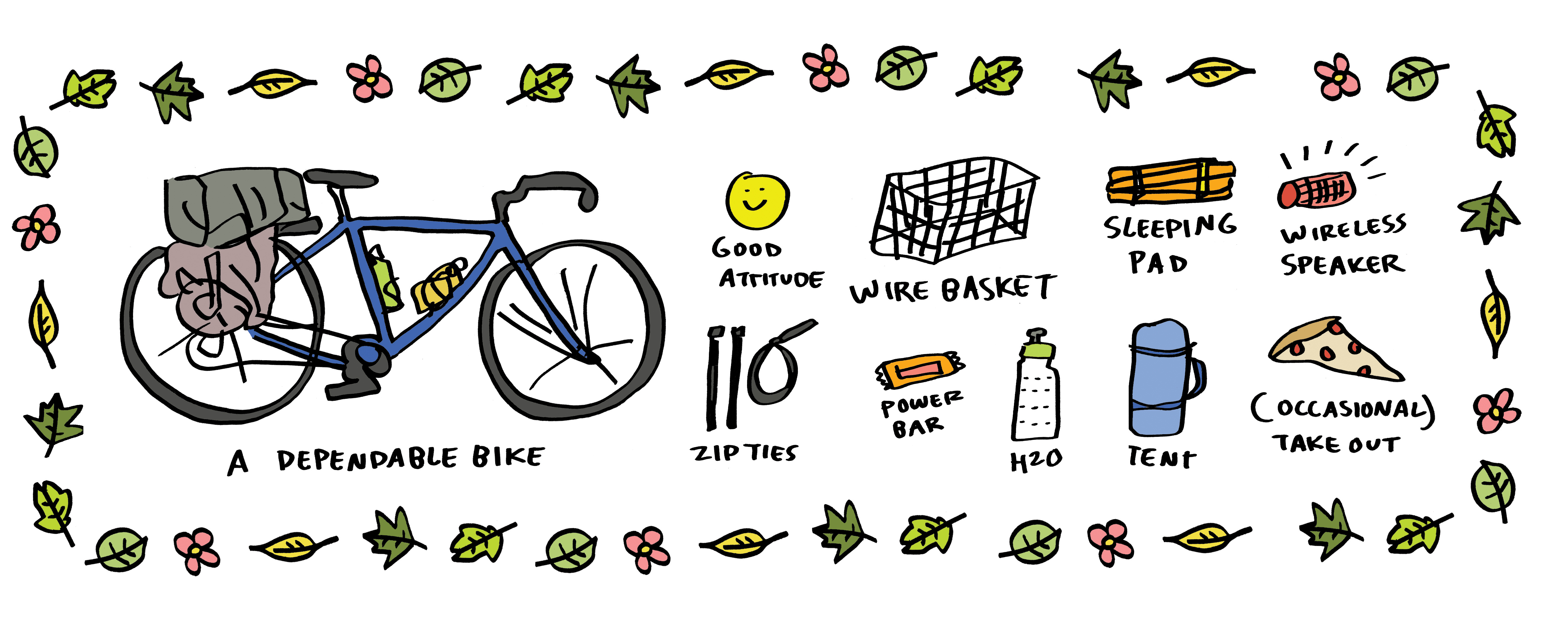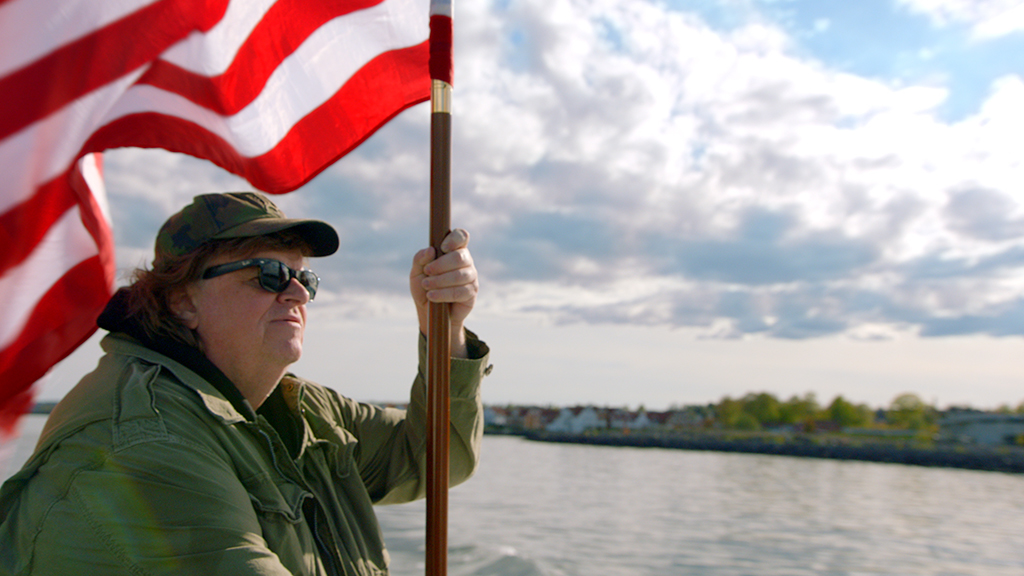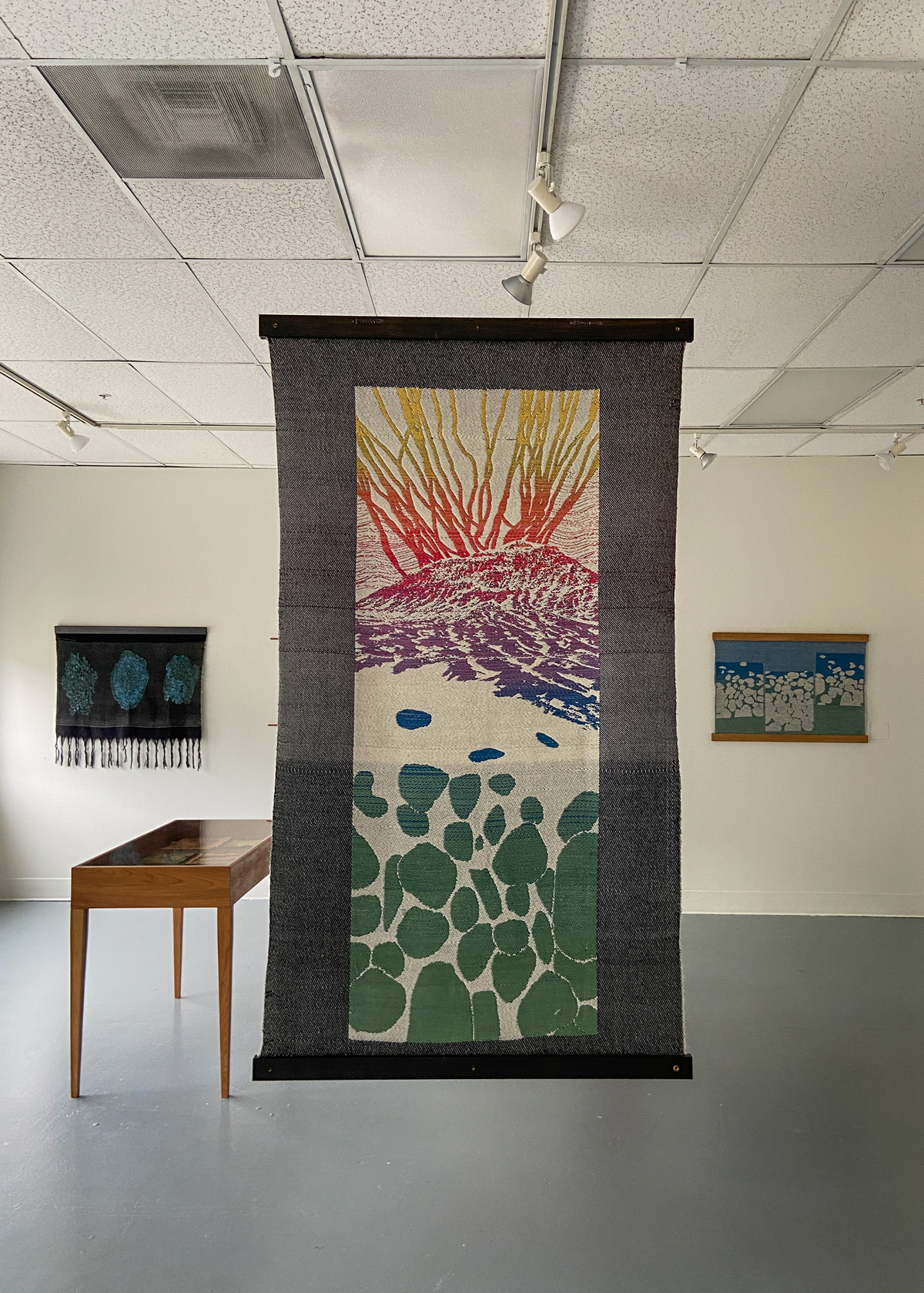The four things anyone needs to go on an overnight bike camping trip are a bicycle, basic camping equipment, an interest in getting out into nature, and most importantly, the will to have a little fun.
If you need a bike or camping equipment, avoid the big-box retail stores. Don’t be tempted by a $150 new bike—it’s going to be junk. It’d be difficult to maintain, poorly assembled (they often need complete rebuilds by qualified bike mechanics to be safe and functional) and you won’t necessarily have any community support. For the same money, you can rent or buy a used bike in adventure-ready condition and have the backing of the bike community while helping to support it. Don’t worry if it’s the bike you already have—it’s more important that you’re out riding and having fun.
The PSU Bike Hub is a great place to tune your bike up for the season, and if you’re on campus or living nearby, it is probably your local shop. The PSU Bike Hub is a community bike shop that is not only a full-service shop but also a host for DIY bike repair. The shop is well stocked, and employees can order just about anything they don’t happen to have. PSU students and faculty get free memberships, though memberships are available to the general public for a small fee, which allows access to discounts and use of the workspace.
While you’re in the PSU Bike Hub—or any of the numerous local shops and community co-ops such as Bike Farm around Portland—make sure to ask about a rack or inexpensive wire basket, or some other means to carry camping gear with you. While not a local co-op, REI is also a fine resource for equipment and advice. With a bit of luck and good timing, you can score deeply-discounted items at their garage sales.
When carrying things on your bike, it’s generally better to opt for a front rack or basket instead of a rear rack if you’re only using one. While steering may feel funny at first, having your stuff in front generally makes for a more controlled and stable ride than having them on a rear rack. As an added bonus, having a basket in front allows you to stash ride snacks, or maybe a wireless speaker. Baskets can be the humble and ubiquitous, American-made wire Wald baskets that come in many varieties for around $20 or less and last for decades. You can either use the included hardware or attach the basket to a rack with zip ties, hose clamps or another similar device. Portland Design Works has some nice options, but they’re not always budget-friendly.
A good way to keep things strapped to your basket or rack is to use an inexpensive nylon strap from a hardware store. For items like water bottles or small bags, silicone ski straps work well and will last a long time. They’re also good to strap a basket to a rack, making it easier to remove while holding firmly. Another option is using something like John’s Irish Straps, available locally. Really, anything other than bungee cords will work fine.
Gear
OK, so your bike is working, it fits properly and you have a way to carry some stuff. Now you need to find some gear to strap to your awaiting steed. If you’re camping in summer in Cascadia, you won’t need as much gear as in winter. A basic tent and a light sleeping bag with a pad should get you into Snoreville by way of the Funville Highway. The PSU Outdoor Program has all sorts of camping gear available, from tents and sleeping bags to kayaks and crampons. They also offer classes and trips, in addition to special summer rates on gear rentals.
Down sleeping bags are easy to compress and generally have a high weight-to-warmth ratio. The downsides are their cost and maintenance. Down can drastically lose its warmth when its compressed or wet; newer bags overcome these problems, but they’re expensive. Synthetic insulation works better when it’s wet and is much easier to care for; it’s also less expensive. A drawback is less warmth for weight, which isn’t a giant problem in warmer conditions. Renting or borrowing a sleeping bag before your trip will allow you to try it out in a backyard practice campout.
Grub
Now that you have your bike and snoring sorted out, it’s time to figure out how to feed yourself. Remember, space is at a premium, you won’t have refrigeration and cooking will require either a campfire (where allowed) or a camp stove of some sort.
The easiest option is to stop at a local cafe or restaurant and get take-away food on the way to your campsite. There is no shame in not cooking your own food by the campfire, and it can be pretty magical to relax in a campsite with a burrito or pizza after a long bike ride. Pack some energy bars or other snacks to supplement your take-away meals and remember to practice leaving no trace.
The next option is to use camp meals available at outdoor outfitters. The meals are generally freeze-dried and rehydrate into actual food with the help of boiling water. Always read the directions first. While military MRE—meals ready to eat—can be a potential option, they are made by multiple military contractors and vary in quality, and they come with a ton of non-recyclable packaging. You can also mix the two options with a locally-sourced burrito for dinner and instant oatmeal for breakfast.
Where to go
L.L. Stub Stewart State Park is about 30 miles northwest from PSU and has an off-street paved multi-use path for part of the route. The park has camping, services and trails. About 30 miles in the opposite direction from PSU is Dodge Park. It’s on the banks of the Sandy River, and while it doesn’t have much in the way of services, it’s a nice ride over the Springwater Corridor and country roads.
If you’re up for a longer trip and don’t mind crossing the Coastal Range and riding on gravel roads, then the Trask Road Route to Tillamook is a reliable way to the coast. It’s about 60 miles and often remote, but the end of the route is on the Pacific Coast.
For more information about on- and off-pavement bike routes, the Adventure Cycling Association and Bikepacking are good resources, though not necessarily for beginners. Other possible resources include WTF Bike Explorers and a recent Willamette Week article about groups that promote biking diversity through a variety of events, from multi-week backcountry adventures to fun local rides and everything in between.







